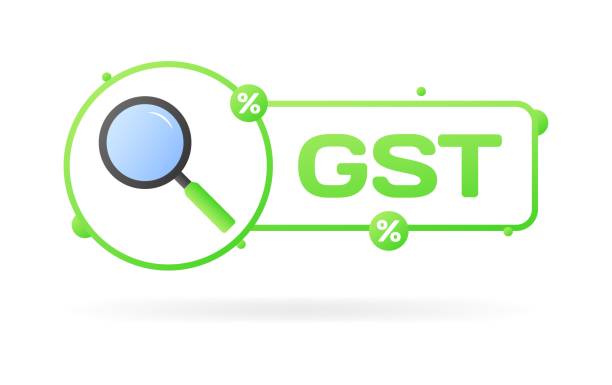What is SEO and Why Does It Matter?

What is SEO and Why Does It Matter?
SEO (Search Engine Optimization) stands for Search Engine Optimization.
This process involves a set of techniques and strategies to improve a website’s ranking in search engine results like Google, Bing, and Yahoo.
The main goal of SEO is to increase organic (non-paid) traffic to the website.
SEO is important for several reasons:
- Increased visibility of the website in search results
- Attracting targeted traffic from users who are looking for your products or services
- Increased credibility and trust of users in the website
- Competitiveness in the online market
- Reduced advertising costs in the long term
In fact, SEO helps you to be seen by your target audience without paying direct advertising costs.
This can lead to increased sales, increased brand awareness, and ultimately, the growth of your business.
SEO is an ongoing process and needs to be updated and adapted to the changing algorithms of search engines.
Are your online sales not as expected? With Rasaweb, solve the problem of low sales and poor user experience forever!
✅ Increase visitor-to-customer conversion rates
✅ Create an enjoyable user experience and increase customer trust
⚡ Get a free consultation now!
Introduction to White Hat, Black Hat, and Gray Hat SEO

Introduction to White Hat, Black Hat, and Gray Hat SEO
In the world of SEO, there are various methods for optimizing a website that can be divided into three main categories: White Hat SEO, Black Hat SEO, and Gray Hat SEO.
- White Hat SEO includes legal and ethical techniques that comply with search engine guidelines.
These methods focus on creating high-quality content, improving user experience, and earning natural backlinks. - Black Hat SEO includes unethical and manipulative techniques that aim to deceive search engines for higher rankings.
These methods typically include using excessive keywords, buying backlinks, and creating duplicate content.
Using Black Hat SEO can lead to penalties and even removal of the website from search results. - Gray Hat SEO includes techniques that fall between White Hat SEO and Black Hat SEO.
These methods may be effective in the short term, but are dangerous in the long term and can lead to website penalties.
Choosing the right SEO method depends on your goals and values.
Using White Hat SEO is the best way to create a sustainable and successful website, while using Black Hat SEO can seriously harm your business.
Keyword Research: A Powerful Tool in SEO

Keyword Research: A Powerful Tool in SEO
Keyword research is one of the most important steps in the SEO process.
Keywords are the phrases that users type into search engines to find the information, products, or services they need.
By identifying and using the right keywords, you can optimize your website to attract targeted traffic.
To conduct keyword research, you can use various tools such as Ahrefs Keywords Explorer, Semrush, and Google Keyword Planner.
These tools help you find keywords related to your field, check their search volume, and assess the competition for them.
When choosing keywords, consider the following:
- Relevance of the keyword to your website’s content
- Search volume of the keyword (the number of times it is searched per month)
- Competition for the keyword (the number of websites that have been optimized for that keyword)
- Search intent of the user (what type of information is the user looking for?)
By using the right keywords in your website content, you can improve your ranking in search results and attract more traffic.
SEO requires choosing the right keywords.
| Keyword | Monthly Search Volume |
|---|---|
| Buy Phone | 10000+ |
| Best Phone | 1000+ |
| Phone Price | 10000+ |
On-Page SEO: Optimizing Web Pages

On-Page SEO: Optimizing Web Pages
On-Page SEO refers to the optimization of elements within your website that affect your ranking in search results.
This includes optimizing titles, meta descriptions, content, URL structure, and images.
The goal of SEO is to help search engines better understand the topic of your pages and rank them for relevant keywords.
The most important elements of On-Page SEO are:
- Title Tag: The page title should be attractive, relevant, and include the main keyword.
- Meta Description: The meta description should be a short, compelling summary of the page content that encourages users to click.
- Content: The page content should be high-quality, valuable, relevant, and unique.
Using keywords naturally and in the text is essential. - URL Structure: The URL structure should be short, readable, and include the main keyword.
- Images: Images should be high-quality, optimized, and have alt text.
- Heading Tags: Using H1 to H6 tags to organize content and highlight important points is essential.
- Internal Links: Creating internal links between different pages of the website helps improve navigation and transfer authority.
By optimizing these elements, you can help search engines better understand your pages and improve your ranking in search results.
SEO is the foundation of a successful SEO strategy.
Tired of losing business opportunities due to not having a professional corporate website? Don’t worry anymore! With Rasaweb’s corporate website design services:
✅ The credibility and professionalism of your brand increases.
✅ You attract more customers and sales leads.
⚡ Get a free consultation to get started now!
Off-Page SEO: Building Authority in the Web World

Off-Page SEO: Building Authority in the Web World
Off-Page SEO refers to the optimization of elements outside of your website that affect your ranking in search results.
This includes earning backlinks from other websites, activity on social media, and building a name and reputation for your brand.
The goal of off-page SEO is to show search engines that your website is credible, trustworthy, and valuable.
The most important elements of Off-Page SEO are:
- Backlinks: Backlinks are links from other websites to your website.
Earning backlinks from reputable and relevant websites is one of the most important factors in website ranking. - Social Media: Activity on social media and sharing your website content helps increase brand awareness and attract traffic.
- Brand Name and Reputation: Building a name and reputation for your brand in the web world helps increase the trust of users and search engines.
- Online Advertising: Online advertising can help increase website traffic and attract backlinks.
- Public Relations: Public relations can help publish news and information about your business in the media and other websites.
By creating a strong off-page SEO strategy, you can increase your website’s authority and improve your ranking in search results.
SEO complements On-Page SEO, and both are necessary for success in SEO.
Optimizing User Experience (UX): A Key Role in SEO

Optimizing User Experience (UX): A Key Role in SEO
Optimizing User Experience (UX) refers to improving the experience of users who visit your website.
A website with good UX is functional, easy to use, and attractive.
Search engines like Google place a lot of importance on UX and rank websites with better UX higher in search results.
Various factors affect UX, including:
- Page Load Speed: Pages that load quickly provide a better user experience.
- Responsive Design: The website should be optimized for display on different devices (computer, mobile, tablet).
- Easy Navigation: Users should be able to easily navigate your website and find the information they need.
- High-Quality Content: Website content should be valuable, relevant, and readable.
- Attractive Design: The website design should be attractive and consistent with your brand.
- Accessibility: The website should be accessible to all users, including people with disabilities.
By improving the UX of your website, you can reduce the bounce rate, increase the time users spend on the website, and improve the conversion rate.
These factors show search engines that your website is valuable and should be ranked higher in search results.
SEO and UX are closely related and both are essential for success in the online world.
Technical SEO: Optimized Infrastructure for Search Engines

Technical SEO: Optimized Infrastructure for Search Engines
Technical SEO refers to optimizing the technical aspects of your website that help search engines better identify, crawl, and index your website.
Technical SEO includes actions such as optimizing website speed, creating an XML sitemap, and fixing crawl errors.
The most important aspects of Technical SEO are:
- Website Speed: Website speed should be high so that users have a good user experience.
- Crawlability: Search engines should be able to easily crawl and index all pages of your website.
- Mobile Version: Your website should be optimized for display on mobile devices.
- XML Sitemap: The XML sitemap helps search engines better understand the structure of your website.
- robots.txt file: The robots.txt file allows search engines to crawl or prevent crawling certain pages of your website.
- SSL Certificate: Using an SSL certificate to create a secure connection between the website and users is essential.
- URL Structure: The URL structure should be logical and readable.
By improving the technical SEO of your website, you can help search engines better understand your website and improve your ranking in search results.
SEO is a vital aspect of SEO and should not be ignored.
| Item | Description | Importance |
|---|---|---|
| Site Speed | Check and improve page load speed | High |
| Responsiveness | Compatibility of the site with different devices | High |
| XML Sitemap | Create and submit a sitemap to Google | Medium |
Local SEO: Attracting Local Customers

Local SEO: Attracting Local Customers
Local SEO refers to optimizing your website to attract local customers.
If your business has a physical location (such as a store, restaurant, or office), local SEO can help you be seen in local search results on Google Maps and other search engines.
The most important elements of Local SEO are:
- Registering your business with Google My Business: Google My Business is a free tool that allows you to register your business information with Google.
- Optimizing your Google My Business profile: Enter complete and accurate information in your Google My Business profile.
- Getting customer reviews: Ask your customers to leave you reviews on Google My Business.
- Using local keywords: Use local keywords in your website content.
- Mentioning Name, Address, and Phone number (NAP): Mention your business name, address, and phone number consistently on your website and other online platforms.
- Creating Local Pages: Create a local page for each of your business’s physical locations.
By optimizing your website for local SEO, you can rank better in local search results and attract more customers.
SEO is very important for local businesses and can help increase sales and grow their business.
Did you know that 85% of customers check your company’s website before any interaction?
With Rasaweb, build a corporate website that deserves your credibility.
✅ Increase the credibility and trust of customers
✅ Attract high-quality leads
⚡ Get a free website design consultation
Measuring and Analyzing SEO Results

Measuring and Analyzing SEO Results
Measuring and analyzing SEO results is essential to understand the effectiveness of your SEO strategy and identify opportunities for improvement.
By measuring and analyzing SEO results, you can make better decisions about how to allocate your resources and optimize your efforts.
The most important metrics for measuring SEO are:
- Organic Traffic: Organic traffic is the traffic that comes to your website from search engines.
- Keyword Ranking: Keyword ranking is the position of your website in search results for specific keywords.
- Bounce Rate: The bounce rate is the percentage of users who leave the website after viewing one page of your website without visiting other pages.
- Time on Page: Time on page is the amount of time users spend on your website.
- Conversion Rate: The conversion rate is the percentage of users who perform a specific action on your website (such as buying a product, signing up for a newsletter, or contacting you).
To measure and analyze SEO results, you can use various tools such as Google Analytics and Google Search Console.
These tools help you get accurate information about your website traffic, keyword ranking, user behavior, and other important SEO metrics.
Using this information, you can optimize your SEO strategy and get better results.
The Future of SEO and Changes in Search Engine Algorithms

The Future of SEO and Changes in Search Engine Algorithms
SEO is a dynamic field that is constantly changing.
Search engines like Google regularly update their algorithms to provide users with better search results.
To be successful in SEO, you must be aware of the latest changes to search engine algorithms and adapt your strategy accordingly.
Some of the important trends in the future of SEO are:
- Greater Importance to User Experience: Search engines will place more importance on websites that provide a good user experience.
- Greater Importance to High-Quality Content: Search engines will place more importance on high-quality, valuable, and relevant content.
- Greater Importance to Voice Search: With the increasing use of smart devices and voice assistants, optimization for voice search will become more important.
- Greater Importance to Artificial Intelligence: Artificial intelligence will play an important role in search engine algorithms.
To prepare for the future of SEO, you should focus on creating a website with a great user experience, producing high-quality content, optimizing for voice search, and using artificial intelligence.
By adapting to changes in search engine algorithms, you can maintain your website’s ranking and attract more traffic.
Using various SEO techniques will lead to progress in this field.
Frequently Asked Questions
| Question | Answer |
|---|---|
| What is SEO? | SEO, or Search Engine Optimization, is a process to increase the quality and quantity of website traffic by improving the site’s ranking in natural (organic) search engine results like Google. |
| What are the main types of SEO? | SEO is divided into three main categories: On-Page SEO, Off-Page SEO, and Technical SEO. |
| What does On-Page SEO include? | On-Page SEO includes optimizing elements within the website, such as keywords, title tag, meta description, content, URL structure, images, and internal links. |
| What is Off-Page SEO? | Off-Page SEO refers to activities outside the website that help improve its ranking, such as Backlink Building, social media marketing, and Brand Mentions. |
| What is Technical SEO? | Technical SEO deals with optimizing the technical aspects of the website to help crawl and index better by search engines. This includes site speed, mobile-friendliness, site structure, sitemaps, and Robots.txt file. |
| What role do Keywords play in SEO? | Keywords are the terms that users enter into search engines. Correct and targeted use of relevant keywords in content and site elements helps search engines understand the topic of your page and display it in related searches. |
| What is a Backlink and why is it important? | A backlink or inbound link is a link from one website to another. Backlinks act as a “vote of confidence” for search engines from other sites and play an important role in the credibility and increased ranking of the site, especially if they are from reputable sites. |
| How does Quality Content affect SEO? | High-quality, relevant, comprehensive, and unique content not only attracts and retains users, but also shows search engines that your page is valuable. This helps to improve ranking, reduce Bounce Rate, and increase the time a user spends on the site. |
| Why is site loading speed important for SEO? | Site loading speed is an important ranking factor for Google. Faster sites provide a better user experience, have lower bounce rates, and are preferred by search engines. |
| Is SEO a one-time process? | No, SEO is an ongoing and long-term process. Search engine algorithms are constantly changing, competition is increasing, and site content also needs to be updated. Therefore, SEO requires continuous monitoring, analysis, and optimization. |
And other advertising services of Rasa Web Advertising Agency
Smart Website Development: A fast and efficient solution to increase sales with a focus on custom programming.
Smart Brand Identity: A creative platform to improve sales growth using real data.
Smart Reportage: An effective tool for digital branding by optimizing key pages.
Smart Marketplace: A professional solution for user interaction with a focus on optimizing key pages.
Smart Reportage: A fast and efficient solution for managing campaigns with a focus on custom programming.
And hundreds of other services in the field of internet advertising, advertising consulting and organizational solutions
Internet Advertising | Advertising Strategy | Advertising Report
Resources
SEO Tutorial Video on Aparat
,Moz’s Complete SEO Guide
,What is SEO and Why Does It Matter? – HubSpot
,SEO Basics: A Step-by-Step Guide for Beginners – Ahrefs
? With Rasaweb Afarin, your business rises powerfully in the digital world. From responsive website design to search engine optimization, we are with you to have a powerful and lasting presence on the web.
📍 Tehran, Mirdamad Street, next to the Central Bank, Kazerun Jonoubi Alley, Ramin Alley, No. 6



